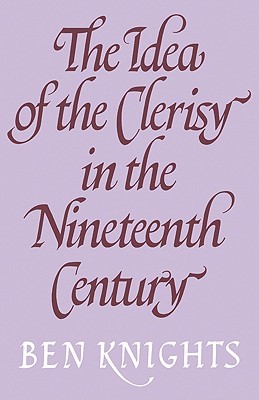
- We will send in 10–14 business days.
- Author: Ben Knights
- Publisher: Cambridge University Press
- ISBN-10: 0521142490
- ISBN-13: 9780521142496
- Format: 14 x 21.6 x 1.7 cm, softcover
- Language: English
- SAVE -10% with code: EXTRA
Reviews
Description
This book is about the development in nineteenth-century England of the idea of a secular intellectual elite - the 'clerisy'. These intellectuals wanted to free themselves from the pressures of material conditioning and be in touch with transcendent values. This elite would be capable of seeing and valuing the best in the national cultural heritage and raising the standard of intellectual life. Dr Knights considers five major writers who shared this concern: Coleridge, Carlyle, Matthew Arnold, J. S. Mill and J. H. Newman. He finds important similarities, arising out of shared problems and assumptions. The status of literary culture was still such that to many of its practitioners a 'clerisy' offered the only hope of reversing a trend towards cultural and social disintegration. Dr Knights goes on to examine the influence of the idea upon the reorganisation of university curricula in the latter part of the century.
EXTRA 10 % discount with code: EXTRA
The promotion ends in 20d.16:03:19
The discount code is valid when purchasing from 10 €. Discounts do not stack.
- Author: Ben Knights
- Publisher: Cambridge University Press
- ISBN-10: 0521142490
- ISBN-13: 9780521142496
- Format: 14 x 21.6 x 1.7 cm, softcover
- Language: English English
This book is about the development in nineteenth-century England of the idea of a secular intellectual elite - the 'clerisy'. These intellectuals wanted to free themselves from the pressures of material conditioning and be in touch with transcendent values. This elite would be capable of seeing and valuing the best in the national cultural heritage and raising the standard of intellectual life. Dr Knights considers five major writers who shared this concern: Coleridge, Carlyle, Matthew Arnold, J. S. Mill and J. H. Newman. He finds important similarities, arising out of shared problems and assumptions. The status of literary culture was still such that to many of its practitioners a 'clerisy' offered the only hope of reversing a trend towards cultural and social disintegration. Dr Knights goes on to examine the influence of the idea upon the reorganisation of university curricula in the latter part of the century.


Reviews